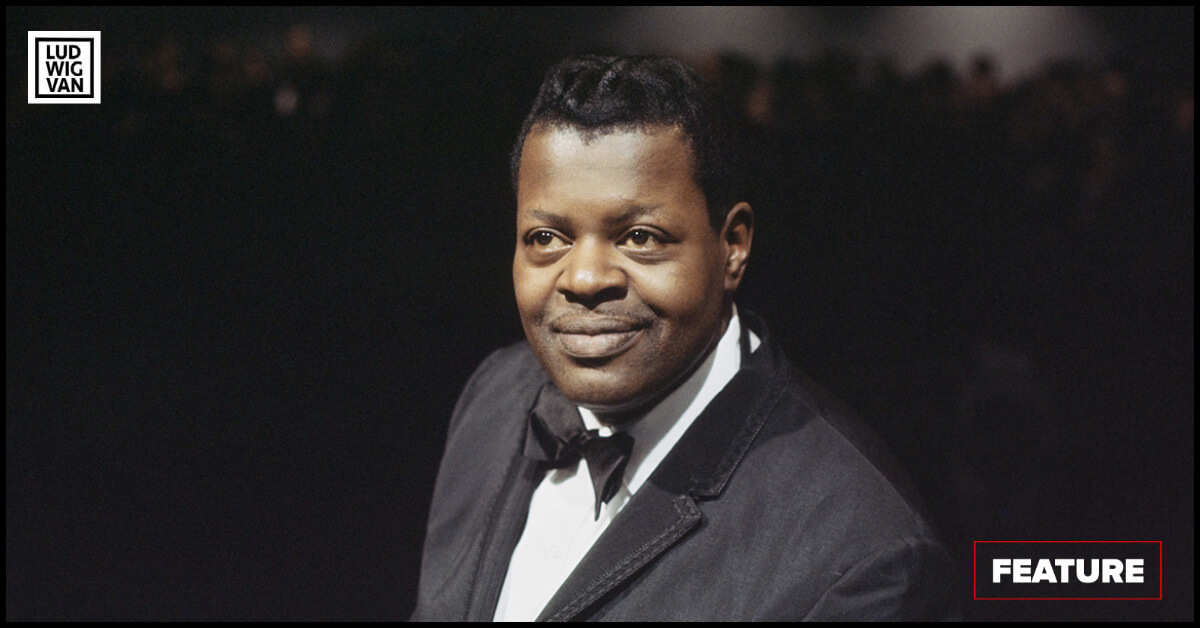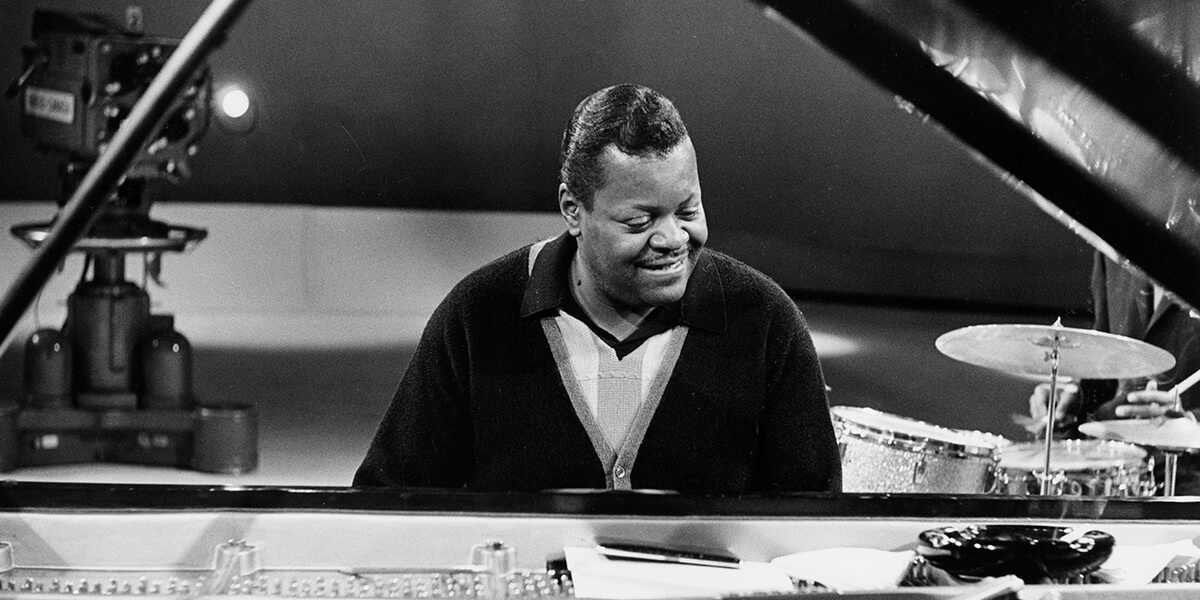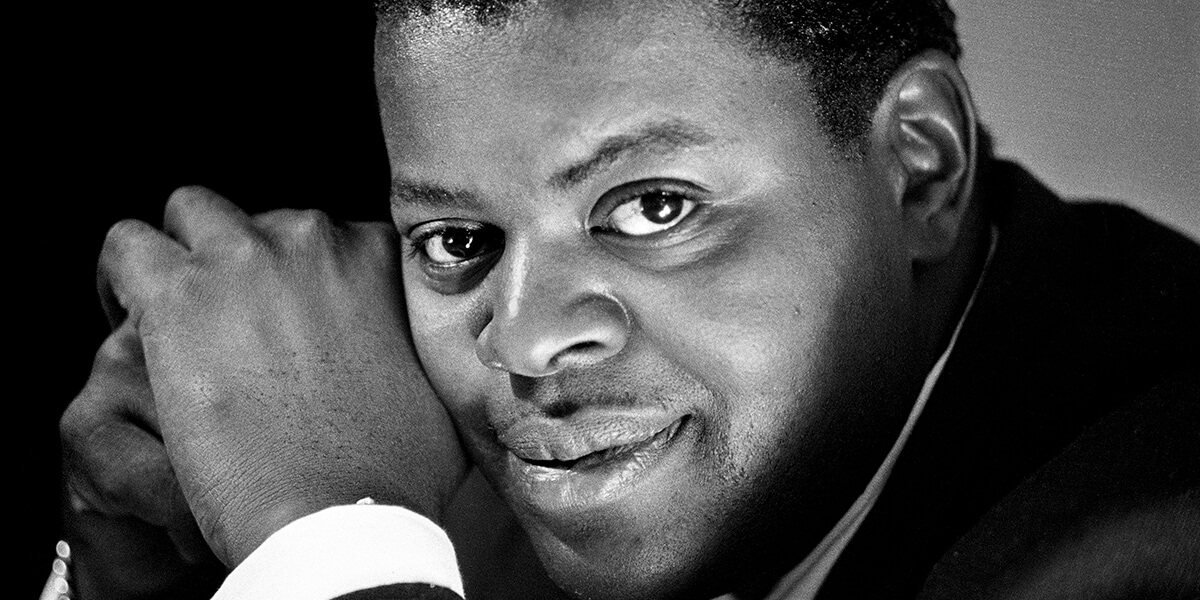
“I am a jazz pianist, that’s all I want to be,” says Oscar Peterson in director Barry Avrich’s new documentary, an unabashed love letter to the Canadian pianist and jazz great.
It’s a simple statement, and low key in a typically Canadian way. It’s the more regrettable Canadian penchant for failing to elevate our heroes that drove Avrich to create Oscar Peterson: Black + White, which premiered at the Toronto International Film Festival on September 12.
“You can’t be a superstar and stay in Canada,” Avrich notes. “Those that stayed paid a price. They weren’t global superstars in the minds of Canadians because they live here.”
Avrich describes growing up in Montreal in a household where one of the essential records was a Peterson release. His mother took him to live concerts as Place des Arts, where he saw many great artists play. “Including Oscar Peterson, who was from Montreal — nobody knew that,” he says.

Those dazzling hands
“What inspired the project?” Avrich asks. “One is that, I never forgot about Oscar Peterson.”
In the years since his death in 2007, it’s been easy to forget just how dazzling Oscar’s playing style was. The film redresses that situation with a steady stream of both his music and clips of him playing. Those hands fly up and down the entire length of the keyboard with an ease that’s jaw dropping at times.
Indeed, as Billy Joel relates, the first time he heard Oscar on a record, he was convinced there were two guys playing.
Joel is just one of the many music and jazz greats who appear in the documentary to talk about Oscar and his music. That roster includes Herbie Hancock, Oscar winner Jon Batiste (another jazz cat who credits a classical music foundation), and fellow pianist Ramsey Lewis, who says at one point that Oscar, “frightened the hell out of people, pianistically.”
Along with archival footage, the doc includes contemporary performances by Measha Brueggergosman, Joe Sealy, pianist Robi Botos, and bassist Dave Young, among others.
As it turns out, the pandemic, which grounded the tours of many artists, made putting the film together a little easier. “Getting musicians together to do that concert,” Avrich says, “to be able to get the cast we did, people were not touring. To have them available was a coup.”
His meteoric rise from the working class streets of east Montreal to jazz stages by the time he was a teenager is documented. Oscar himself credits a classical music foundation for giving him that dizzying technical facility, and his classical music teacher for being the first person who made him believe he could do something with his talent.

A generous musicality
Later, the movie charts his run to international fame, and a life of largely touring the world for many years. It saw him through three divorces and several children, as the doc notes. One section of the movie deals with Oscar’s involvement in the Civil Rights movement, and some of his experiences travelling through the American South during the 1950s and 1960s. The last segments deal with his later life, including happy final marriage to Kelly, (who appears in the movie), stroke, and incredible ability to play after it, even with an impaired left hand.
“The most amazing thing about his music that I discovered through making this documentary was his generosity,” says Avrich. “It might have been in his DNA.”
Through interviews, archival footage, and commentary, a portrait of the man emerges. He seems to have genuinely been that affable giant we’d see on stage and in footage, always smiling. Oscar’s musical generosity also comes through the interviews. Unlike with many other bandleaders, Peterson allowed each member of his various ensembles over the decades to shine, and even after years on the road, they remained good friends. That’s not so typical in the upper echelons of the music biz.
Despite the obvious need for recognition of Oscar in the form of a documentary film, it wasn’t an easy sell. “Everybody looks at these documentaries for the drama,” Avrich says. “There’s nothing here — no ‘needle in the arm’. This isn’t R. Kelly or Phil Spectre. People tend to gravitate to that headline.”
Oscar’s story, in contrast, is one of warmth and appreciation.
For filmmaker Avrich, the timing of the project echoes a journey back to jazz several years earlier. “I was introduced to jazz early on through those records, but I never really appreciated the composition,” he says. After a brief infatuation with classic rock, he found himself in the now closed Sam the Record Man in Toronto one day, and rediscovered the music in the process. “I got lost in that music again,” he says. It makes the project personal. “It means a lot to me.”
He’s hoping fellow Canadians will, just as the film does, put Oscar Peterson on the pedestal he deserves.
Oscar Peterson: Black + White will be released in Toronto, Montreal and other cities in Cineplex cinemas on Sept. 18, and will be available to stream on CRAVE starting on Oct. 22.
#LUDWIGVAN
Get the daily arts news straight to your inbox.
Sign up for the Ludwig van Daily — classical music and opera in five minutes or less HERE.
- PREVIEW | SUMMER OPERA LYRIC THEATRE Presents Handel’s Xerxes, Mozart’s Idomeneo & Puccini’a La Boheme July 26 To August 4 - July 26, 2024
- PREVIEW | YENSA Festival V.2 Offers Black Flames Performances & Other Ways To Celebrate Black Women In Dance - July 25, 2024
- PREVIEW | Canadian Talent Conspicuous In The Met: Live In HD 2024-25 Season - July 25, 2024



